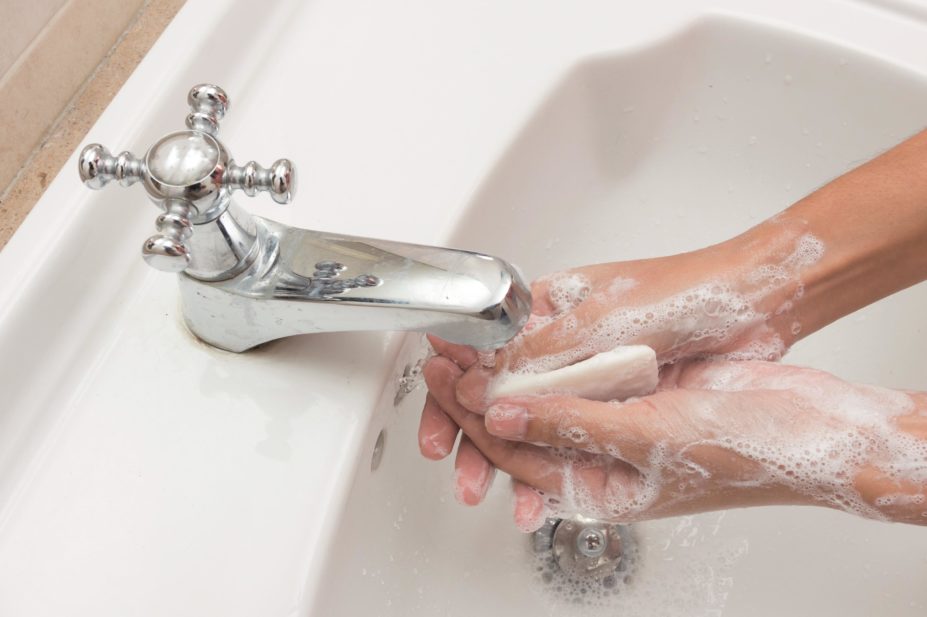
Shutterstock.com
Triclosan is the most widely used antiseptic agent in antibacterial soaps. But concerns over the safety and efficacy of antibacterial soaps compared with ordinary soaps prompted a US Food and Drug Administration (FDA) ruling that antibacterial soap manufacturers must prove that their products are better than ordinary soap and water.
Researchers at Korea University, Seoul, investigated the bactericidal activity of antibacterial soap (containing 0.3% triclosan) and ordinary soap against 20 bacterial reference strains proposed by the FDA, and also compared the effectiveness of antibacterial soap with that of ordinary soap at removing Serratia marcescens from volunteers’ hands. They found no significant difference and concluded that ordinary soap is as good as antibacterial soap at cleaning hands under real-life conditions.
The researchers’ finding, published in Journal of Antimicrobial Chemotherapy
[1]
(online, 15 September 2015), has implications for the advertising of — and consumer belief in — antibacterial soaps.
References
[1] Kim SA, Moon H, Lee K et al. Bactericidal effects of triclosan in soap both in vitro and in vivo. Journal of Antimicrobial Chemotherapy 2015. doi:http://dx.doi: 10. 1093/jac/dkv275.


